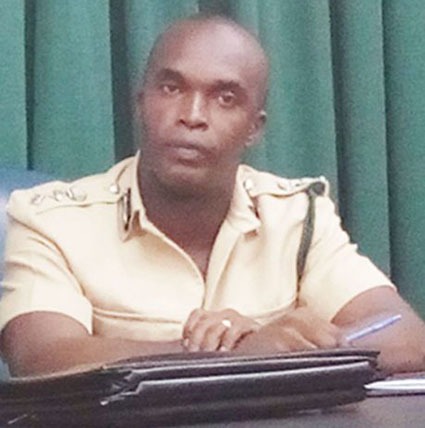Saying that the smuggling of contraband items into the prison facilities, including the maximum security facility at Mazaruni, has been a growing issue, acting Director of Prisons Gladwin Samuels on Monday sternly warned that officers found colluding in such activity will face the law.
In a press statement, Samuels expressed concern about the amount of prohibited items being smuggled into the prisons despite the level of security.
Despite regular routine searches over the past few weeks, he explained, contraband items continue to be discovered. These items, which have been deemed the “minor ones,” include cellular phones, marijuana and local wine.
Samuels also said that while this issue is prevalent at all prison facilities, concerns have been raised particularly about the situation at the Mazaruni Prison due to the extent of collusion that is needed for the contraband items to enter the confinement.
“Taking into account the quantity of these prohibited items and the locations where some of the items are discovered, it stretches the imagination that these items got into the prison only being trafficked by prisoners using their bodies to conceal same,” Samuels said.
The situation, he added, should be a concern, as he reminded officers of their duties and sternly warned that those found culpable will face the law. “Getting rid of contraband in prison cannot be a fight by a few. Collective effort is required. The well-established syndicate may think that they are safe and secure but they cannot be allowed to continue. We will continue our searches, and those found to be colluding in trafficking contraband will have to answer to the law. We cannot compromise,” Samuels said.
He further said that while efforts are being made to improve the physical structures and improve the use of technology, the reliance is presently on the human factor. “As Prison Officers working in a service dedicated to correction and rehabilitation, we are tasked with the responsibility to make offenders better citizens. We are tasked with creating an environment where our focus on rehabilitation is done with passion,” he added.
He also urged the officers to perform their duties in the right manner. “We are tasked with creating an environment where the people under our charge can respect us, respect our office, and see us as role models for whom they can become. If we support them and their families in contravening the laws of the prison, we are not helping them; we are in fact condoning the very activities that caused them to be in prison in the first place; we are telling them it is okay to be lawless,” he added.
Samuels said that while he believes that many prison officers are not directly involved in the trafficking of contraband, it is suspected that many are aware of those who are. As a result, he urged them to not remain silent and break the law also but to speak out. “The dangers their acts bring to the prison environment also expose you to additional risk,” he said, while adding that prison officers should not be putting their fellow officers at risk.






